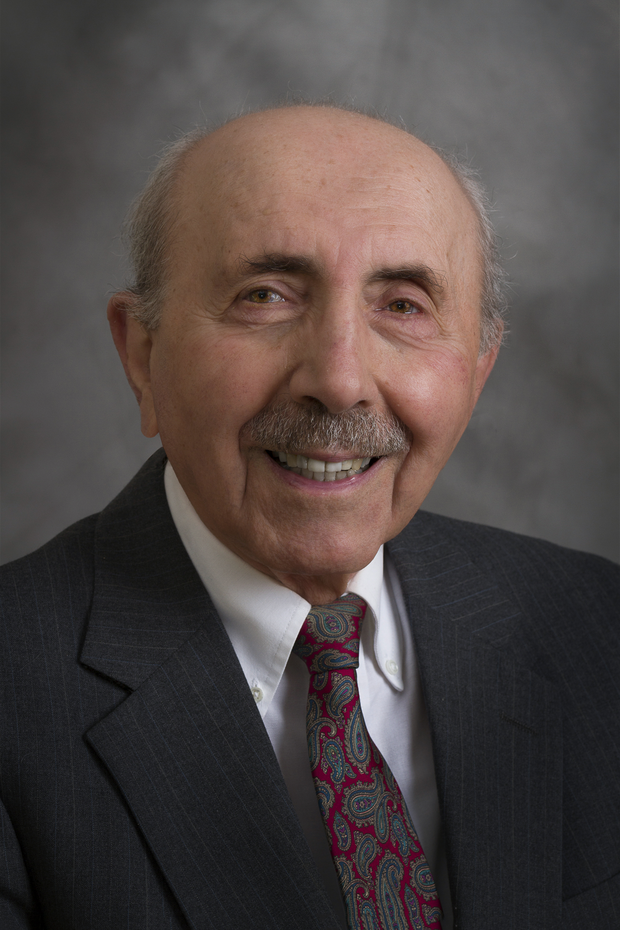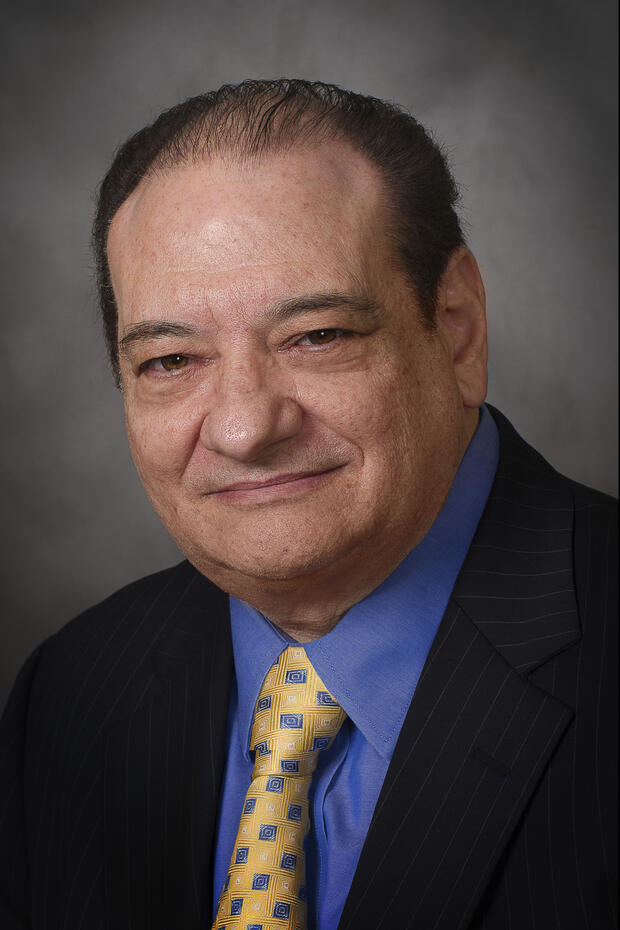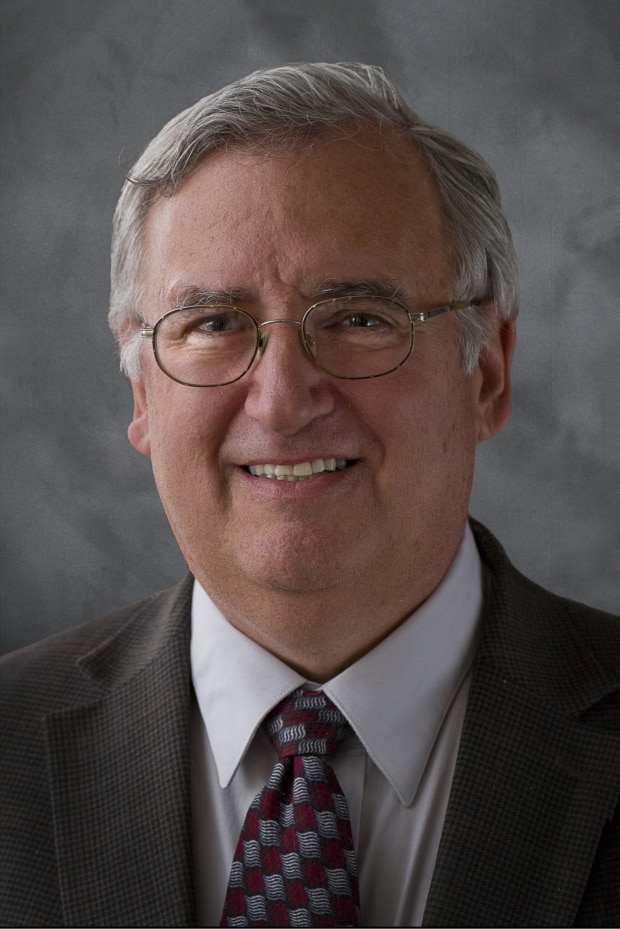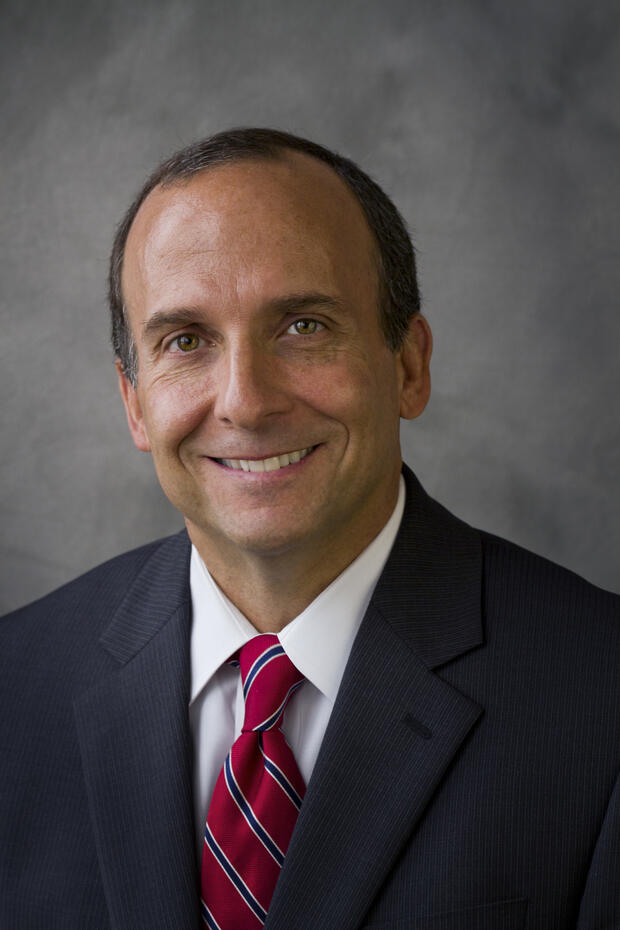Joseph R. Barresi (Inspector General 1981-1991)
Joseph R. Barresi served as the Commonwealth’s first Inspector General from 1981-1991. Prior to becoming Inspector General, Barresi, a graduate of Boston University, had worked at the Boston Municipal Research Bureau for 22 years, serving as Executive Director from 1962 to 1975. He then briefly entered the private sector, serving as Vice President for Bonds at Boston firm Scudder, Stevens & Clark. Missing public service, he applied for the newly created position of state Inspector General and was appointed in 1981.
As the first statewide Inspector General in the country, Barresi faced the daunting task of setting up a brand-new office with an extremely broad mandate: to prevent and detect fraud, waste and abuse in the expenditure of public funds, whether state, federal or local. See M.G.L. c. 12A, § 7.
Always mindful that every act the agency took in its first days set a precedent, Barresi quickly established the OIG as a competent, professional agency dedicated to protecting public funds. Despite beginning with only “good wishes, an empty floor, a desk, and a statute,” as Barresi liked to say, the OIG under his leadership pursued investigations that resulted in 40 felony convictions and savings of over $125.4 million in public money.
One highlight was an investigation the Office dubbed “Operation No-Show.” The OIG discovered that Department of Public Works employees had orchestrated a scheme in which consultants billed the state for highway surveys that were never performed. As a result of these findings, two individuals and one corporation pleaded guilty to fraud and racketeering charges, and the state recovered over $400,000 in restitution.
Other notable matters during Barresi’s tenure include investigations that found $104,000 stolen from the city of Revere by its former purchasing agent, contracting scams at the former Metropolitan District Commission worth some $300,000 and the theft of more than $100,000 in vouchers from the Women, Infants, and Children Nutrition Program (WIC).
But perhaps Barresi’s greatest legacy is the passage of the Uniform Procurement Act, Chapter 30B of the Massachusetts General Laws. Setting a precedent that future Inspectors General would follow, Barresi emphasized the importance of prevention in the OIG’s work, as demonstrated most profoundly by his efforts to ensure the passage of a statewide procurement law. Although the Ward Commission’s recommended reforms led to essential changes in state government, they were relatively narrow in scope. Most public contracting, including at the municipal level, was still not subject to procurement rules requiring open and competitive contracting. In the belief that “good procurement procedures save money,” Barresi’s office worked closely for over five years with the Legislature on the drafting and passage of the Uniform Procurement Act. Signed into law in 1990, Chapter 30B requires open and competitive procurement processes for most jurisdictions in the state, including municipalities. Training government employees on Chapter 30B has been an essential function of the OIG since the Act’s passage.
Under Barresi’s management and vision, the Ward Commission’s ideal of an Inspector General’s Office that would act as an instrument of government “self-criticism and self-correction” became reality: an established, professional state agency that continues that mission 40 years on. As Barresi himself stated, “Integrity in government is not achieved once and for all. It must be demanded, constantly, day by day.”
Joseph R. Barresi, who passed away in 2018 at the age of 95, is remembered by family, friends and colleagues as a man of integrity and a devoted public servant.
Robert A. Cerasoli (Inspector General 1991-2001)
Robert A. Cerasoli became the Commonwealth’s second Inspector General in 1991 and served until 2001. Cerasoli, a graduate of the American University, the Kennedy School of Government at Harvard University and Abilene Christian University, was a state representative from 1975 to 1991. As a state representative, he developed what would become a life-long interest in promoting ethical public service. He co-authored M.G.L. c. 268B, which created the State Ethics Commission and requires financial disclosure for all elected and appointed officials. He went on to serve as Chairman of the House Committee on Ethics and then as Chairman of the House Committee on Post Audit and Oversight.
Cerasoli put his passion for ethical government to full use as Inspector General, overseeing the OIG’s investigation into the largest and most complex construction project in the history of the United States: the Central Artery/Tunnel project (the Big Dig). Cerasoli convinced the Executive Office of Transportation and the Massachusetts Highway Department (MHD), the agencies responsible for the project, to sign an unprecedented interagency service agreement in 1992. Under the agreement, the OIG provided assistance to the MHD for Big Dig topics as far-ranging as alternative dispute resolution, bid methodologies, inventory control, conflict of interest policies and construction management. At the same time, the OIG maintained its right to conduct management reviews and investigations of the project, which it did, publishing numerous reports that would, in Cerasoli’s words, “stand five feet high if stacked.”
Cerasoli also brought to the Office an emphasis on the importance of training and education for public employees. As Inspector General, Cerasoli was a founding member and the first president of the Association of Inspectors General (AIG), a national organization intended to “promote the exchange of information, ideas and best practices, and assist in ensuring [that] inspector general staff are well-trained to perform their duties.” Since 1999, the AIG has offered a certification program for training in best practices for inspector general offices, which thousands of employees attend each year. Cerasoli was also responsible for proposing, developing and co-authoring Principles and Standards for Offices of Inspectors General (the Green Book), which enshrined principles and quality standards in a guide for inspector general offices.
Cerasoli believed in the importance of training public employees responsible for procurement as well. In 1997, the OIG developed the Massachusetts Certified Public Purchasing Official (MCPPO) program after Cerasoli successfully sought authorization and funding from the Legislature for a training and certification program. Cerasoli saw the potential that such programs had to further the OIG’s mission by preventing fraud, waste and abuse of government resources. Cerasoli is proud that, for nearly 25 years, the MCPPO program “has demonstrated the value of devoting resources to build the capacity of public purchasing officials to operate effectively, efficiently and ethically.”
The legacy of Robert Cerasoli’s emphasis on education and training during his time as Inspector General is evident in the thousands of public employees who have attended AIG and MCPPO classes and conferences over the years, where they learned about the importance of accountability, integrity and professionalism in government work.
After leaving the Massachusetts OIG and teaching for several years, Cerasoli became the first Inspector General for the city of New Orleans, Louisiana, where he served for two years. Created in the aftermath of Hurricane Katrina, the New Orleans Office of the Inspector General was based on the principles and guidance outlined in the Green Book. As the first New Orleans Inspector General, Cerasoli built the office from the ground up, securing funding, overseeing the establishment of an independent police monitor and successfully lobbying for changes to the city charter and state legislation to strengthen the office.
Gregory W. Sullivan (Inspector General 2001-2012)
Gregory W. Sullivan became the Acting Inspector General in June 2001, when his predecessor, Robert Cerasoli, stepped down prior to the expiration of his second term. A year later, Sullivan was appointed to a full, five-year term. He served as the Commonwealth’s third Inspector General until 2012.
When Sullivan became Inspector General, he had already been working in the Office for a decade: originally, as Chief of the Management Division, and, starting in 1994, as First Assistant Inspector General in charge of financial investigations. He had been a public servant for more than 20 years, having been elected to represent his hometown of Norwood in the state legislature when he was a senior at Harvard College.
Sullivan brought his love of investigations to his role as Inspector General. He was known for personally reviewing case documents. During a 2005 review of health care spending by the state’s Uncompensated Care Pool (Pool), Sullivan discovered that one hospital outpatient pharmacy had repeatedly charged the Pool more than $6,000 per bottle for the cholesterol-lowering medication Lipitor. In contrast, another hospital pharmacy had charged the state less than $225 per bottle. Sullivan’s findings helped convince the Legislature to replace the Pool with the Health Safety Net. The Legislature also asked the Office to continue monitoring the state’s health care spending, a mandate that continues to this day.
Sullivan was conscious of building on the work of his predecessors. He saw Joseph Barresi as a “tremendous role model” who infused the Office with “an ethos of independence.” He called Robert Cerasoli “responsibly daring” for his investigations of the Big Dig.
One of the largest investigations during Sullivan’s tenure was into then-Speaker of the Massachusetts House Salvatore F. DiMasi. In 2009, DiMasi resigned his post after the OIG initiated an investigation into kickbacks paid to DiMasi’s friends and associates in connection with two multi-million-dollar software contracts. The OIG’s work with the U.S. Attorney’s Office led to DiMasi’s conviction in 2011 on charges of fraud, conspiracy and extortion related to the state contracts. (See "40 Years of OIG Investigations" for more information about the OIG’s investigation of DiMasi.)
Sullivan said the OIG sometimes felt like an island, cut off from other government agencies. “The Inspector General’s Office was created by the Legislature to be a self-critical, self-corrective agent in government. I came to realize that people don’t like to be criticized or corrected,” he said in an interview with the OIG Bulletin.
The lowest point of Sullivan’s tenure came at the hands of Governor Mitt Romney, who eliminated the Office of the Inspector General as an independent agency in each of his four annual budgets. Each time, the Legislature rejected Romney’s plan, and Sullivan breathed a sigh of relief.
Cases aside, Sullivan took pride in his staff. He appreciated the administrators who managed the Office’s finances, personnel and compliance functions, allowing him to focus on investigations. He made a point of hiring investigators who were willing to question authority – including his. He loved learning from employees with varied strengths and viewpoints.
“It was an honor to work with people who really felt that they were co-equals in the operation and policy-making in the office and were dedicated to working in the public interest,” Sullivan said. “I used to be in awe at least once a day of what people were doing and bringing forward on their own initiative and talent.”
Sullivan said the Office’s greatest strength was its deterrent value, comparing the watchdog agency to the security officers that keep a bank from being robbed. “The Office of the Inspector General represents a perpetual risk to those who would try to abuse their authority for personal gain,” he said. “It’s worth its weight in gold in terms of saving money for the taxpayer.”
Glenn A. Cunha (Inspector General 2012-present)
Glenn A. Cunha has been the Massachusetts Inspector General since 2012. During his more than nine years in the position, Cunha has overseen the largest growth of the Office, expanding and enriching its mandate to work for all citizens of the Commonwealth.
Cunha, a graduate of Boston College, Bentley University Graduate School of Management and Suffolk University Law School, came to the Office with a long career in public service dedicated to helping the Commonwealth’s most vulnerable residents. In his career as an attorney at the Norfolk County District Attorney’s Office, the Suffolk County District Attorney’s Office and the Massachusetts Attorney General’s Office, he prosecuted and supervised cases involving domestic violence, child abuse, human trafficking and financial fraud. Cunha sees his role at the OIG as continuing his lifelong desire to help those who don’t have a voice, whether it be children, the indigent or taxpayers who have been cheated by those in authority.
One of the biggest investigations during Cunha’s tenure as IG involved Evan Dobelle, the former president of Westfield State University. The OIG found that the ex-president repeatedly abused his authority regarding spending. He self-reported billing over $85,000 to school-related credit cards for personal items, and the OIG identified additional improper spending. Dobelle’s political connections made many think that he was untouchable, but the OIG investigated him because, as Cunha explained, “it was the right thing to do.” Cunha found Dobelle’s acts particularly egregious given the important role state universities play in educating first-generation college students. Understanding the importance of not only holding people accountable but also preventing such crimes from occurring again, Cunha successfully introduced a bill to the Legislature that would require training on state laws and financial responsibilities for all public college trustees who oversee the financial decisions of college presidents.
Over the past nine years, Cunha has also overseen the growth of the Office to nearly 70 employees. In 2013, he worked with the Legislature to create the OIG’s Bureau of Program Integrity, which oversees benefit programs in Executive Office of Health and Human Services agencies that help people in Massachusetts meet basic needs. In 2018, the OIG welcomed another Legislature-created embedded unit, the Division of State Police Oversight, to demand accountability from the Massachusetts State Police in the wake of overtime scandals. These divisions play important roles in what Cunha considers the Office’s most important contribution to state government – the restoration of integrity and accountability.
In 2018, the OIG also saw one of Cunha’s most long-standing visions come to fruition: legislative funding for a Civil Recovery Unit (CRU). For the first time in its history, the OIG, through the CRU, began exercising its statutory authority to not just prevent and detect fraud but, through civil recovery actions, to recover money lost to fraud. See M.G.L. c. 12A, § 11. Since January 2019, when the first two CRU staff members started with the Office, the CRU has recovered close to $1.8 million in taxpayer money.
Cunha has also emphasized the importance of prevention during his time at the OIG by growing the MCPPO program. As Cunha notes, MCPPO classes “give public employees and contractors throughout the Commonwealth the skills they need to help fulfill the OIG’s statutory mandate in their own jurisdictions.” Since 2012, MCPPO program class offerings increased from 38 to nearly 90 classes a year while expanding in scope and accessibility. In 2017, MCPPO instructors began traveling to communities across the state to offer more in-person trainings. In 2020, after months of development, the Office offered its first web-based class. The forward-thinking that led the Office to develop a web-based platform for its classes proved extremely prescient when the COVID-19 pandemic forced the Office to quickly transition to an exclusively online format. This online format in turn expanded access to MCPPO classes to even more students – from almost 2,300 students in 2019 to more than 5,000 students in 2020.
When Inspector General Cunha’s second term ends in 2022, he will leave an office focused even more emphatically on its mission to prevent and detect fraud, waste and abuse in the expenditure of public funds, particularly with regard to the Commonwealth’s most vulnerable. He will leave his successor a dedicated, knowledgeable staff well-equipped to handle an ever-changing and challenging world.
Additional Resources
Contact for OIG Bulletin, October 2021: Inspector General Profiles
Phone
Open from 9:00 a.m. to 5:00 p.m., M-F
Address
| Date published: | October 25, 2021 |
|---|



